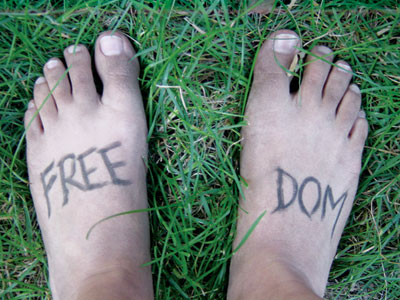All Nonfiction
- Bullying
- Books
- Academic
- Author Interviews
- Celebrity interviews
- College Articles
- College Essays
- Educator of the Year
- Heroes
- Interviews
- Memoir
- Personal Experience
- Sports
- Travel & Culture
All Opinions
- Bullying
- Current Events / Politics
- Discrimination
- Drugs / Alcohol / Smoking
- Entertainment / Celebrities
- Environment
- Love / Relationships
- Movies / Music / TV
- Pop Culture / Trends
- School / College
- Social Issues / Civics
- Spirituality / Religion
- Sports / Hobbies
All Hot Topics
- Bullying
- Community Service
- Environment
- Health
- Letters to the Editor
- Pride & Prejudice
- What Matters
- Back
Summer Guide
- Program Links
- Program Reviews
- Back
College Guide
- College Links
- College Reviews
- College Essays
- College Articles
- Back
Modern Expression MAG
My family’s male adults have this peculiar favoritism toward Steven Seagal or any “macho” actor who cannot act. While critics railed him for expressing every emotion with identical facial expressions, the adults in my family called him the most “manly” man in the world. According to them, Seagal demonstrated the qualities – machine-like facade and extreme self-control – that I lacked as a descendant of Seon-bi, the gentlemen and scholars of ancient Korea.
Living according to my family’s teachings, I should maintain impassivity and callousness at all times. For instance, my family were the only calm ones in 2002, when the entire nation of Korea wildly celebrated the national football team’s advance to the World Cup semi-finals. In family vacation photos, we appear as the Asian version of the Addams Family, with stern faces and rigid poses.
However, the more I listened to the adults and maintained Seon-bi ways, the more I felt like an alien at school. Because of my large physique – I was four inches taller than most of my classmates – and the fact that I never expressed my emotions, my peers nicknamed me “the Terminator.” It was my third-grade year when I discovered why I had been friendless.
The amount of inherent talent gauges musical success, and there were some professionals who saw that potential in me. Wherever and whenever I performed, judges wanted me as their student, but my choral director, Mr. Kim, was the most persistent. He was man of passion; neither the lure of tenure nor a major role in opera motivated him. With sole determination to nurture new generations of classical singers, he waited outside of school, followed me home, and convinced my parents to enroll me in his chorus. My singing success in my elementary years was the result of his special affection toward me and his unusual training methods. After the first lesson, he noticed that my habit of suppressing my emotions impeded his shaping me into well-rounded soloist.
Mr. Kim assigned me eclectic characters – from swindler to mesmerizing Casanova – and gave me erratic weekly homework. I sang while lifting chairs to physically understand and develop abdominal breathing techniques. Every time he gave me that devilish smile, I knew I would be getting another piece and an assignment relevant to the song’s theme. I had to climb a cliff in order to feel and smell mountain air while learning the traditional folk song “Our Wonderful Nation.” I grew Camellia flowers when he assigned me “Camellia.” I even had to confine myself to an empty room for hours to understand the loner’s feelings embodied in the child’s song “Firefly.”
I loved his coaching. I may have offended my ancestors by not following their Seon-bi customs, as my family scolded, but in return, I am no longer ostracized from society. I now have deep, meaningful friendships and am no longer referred to as “the Terminator.”
Everything can change over time, so why shouldn’t customs change too? Obstinately denying this new century and insisting on the ways of the past doesn’t work. Rather, more benefits resulted when I decided to live accordingly in the present. I discovered my capabilities and my character as a singer.
Singing may only be a stress reliever for some, but for me, it is an emotional outlet that exempts me from familial customs that restrained my emotions. Had it not been for Mr. Kim, I would still be living according to the customs of centuries past.

Similar Articles
JOIN THE DISCUSSION
This article has 0 comments.
